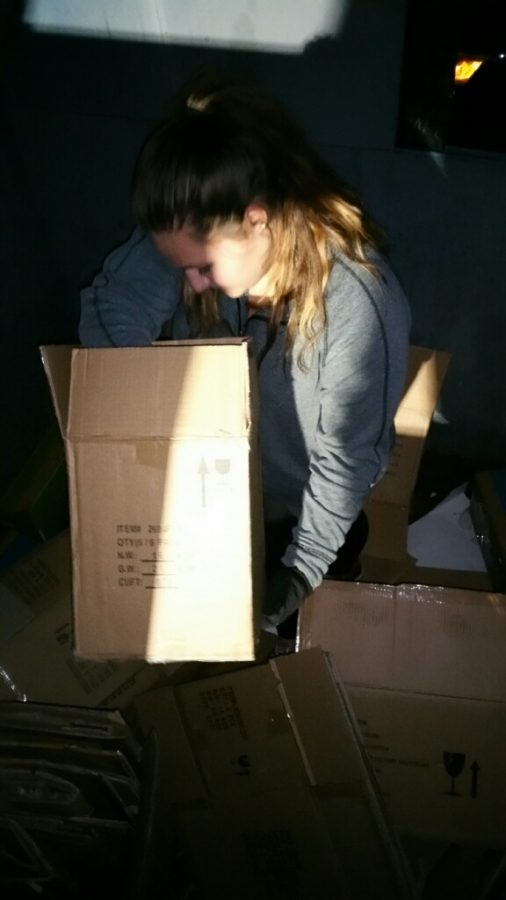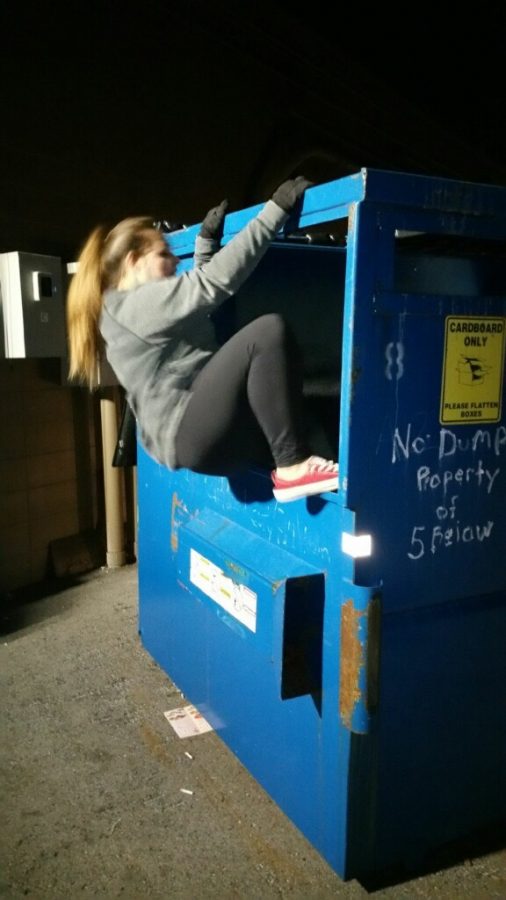Trash or Treasure
Photo by Photo by N. Copenhaver
Junior Sarah Schaefer hops into a dumpster at 5 Below after dark.
December 5, 2016
Trash is scraps that people throw away. Businesses toss scratched packaging and default items because they simply can’t sell them and the customers won’t buy them. What happens to those items? They are either taken to the junkyard and disposed of, or they get picked up by dumpster divers.
“Just for the record, I didn’t get down and dirty in any nasty dumpster,” senior Mariah Whitesell said while recalling her first encounter with dumpster diving. “Dumpsters are actually categorized by what goes in them, so we stayed clear of the food and trash ones.”
In fact, even though it’s called “dumpster diving”, not many people actually get inside the dumpster. Most people use their hands to rummage through what is on top.
“My three friends and I went through a couple of clean GameStop dumpsters. We ended up finding a undamaged Wii board,” Whitesell said.
Some people even dumpster dive as a lifestyle.
“I think it’s just fun. There are people on youtube that their entire channel is just dumpster diving and that’s how I got interested in it” said junior Sarah Schaefer.
Another fellow diver who goes to GameStop is freshman Jack Artl. He only goes about once a month, but he still has some findings.
“I found this PlayStation game once. I also found a Wii U skin, that you put over the controller, and it was in good condition. I ended up selling it for $7 [on EBay],” Artl said.
So why dig through a pile of trash?
“I dumpster dive because the [dumpsters] I go to have valuable things in them,” Artl said. “I consider things valuable if they work, like a working game or a poster in good condition. The benefit is that you can find something that you potentially wanted, so instead of going inside the store and paying for it, you can get it for free.”

One big question is if it is legal.
Artl’s understanding is that is that if someone is on private property, like someone’s house, that is considered illegal.
“Dumpster diving is legal as long as you’re on public property. Most stores are public property which makes it public domain,” Artl said.
Attorney Anthony Lawrence breaks it down a little more for a better understanding and explains the basic laws involving going through other people’s trash.
“Potentially, [charges can include] trespass, conversion, theft. But [that] may depend on the abandonment of the property and the circumstance and location of the container,” Lawrence said. “For example, police can search your trash set out for pickup because you don’t have reasonable expectation of privacy in it, but they can’t come on your property to look before you take it to the street.”




